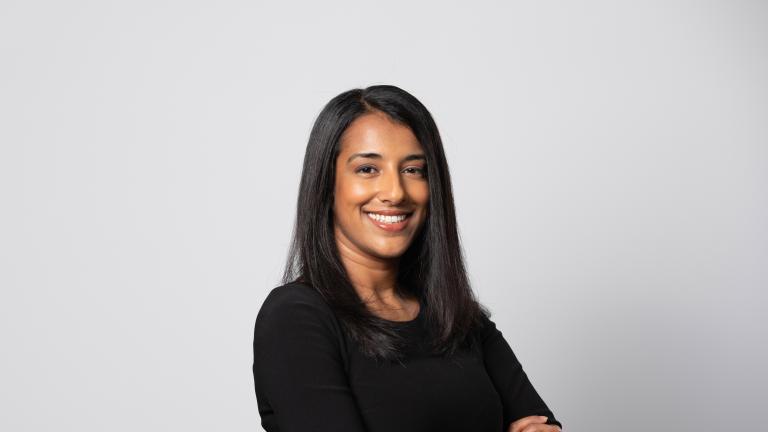This release is more than two years old
This release is more than two years old. For additional information, please contact Amanda Gaudes from our Media Relations team.
News release details
Cell‐phone hacks, internet monitoring, face‐recognition cameras, predictive policing and biometric surveillance. Once the stuff of dystopian science fiction, these technological tools are increasingly used to violate human rights and supress dissent in countries around the world.
American investigative journalist Megha Rajagopalan was forced to leave China last year after probing state surveillance of ethnic Uighur Muslims of the Xinjiang region, with many sent to “political education camps”. She has also investigated the spread of mass surveillance technology in the Persian Gulf. She will share her eye‐opening experiences during an October 1 event at the Canadian Museum for Human Rights (CMHR), as part of its President’s Lecture Series.
Rajagopalan is now based in the Middle East as an international correspondent for BuzzFeed News. She was previously the China bureau chief and Asia correspondent for BuzzFeed News and has reported for Reuters in China, North Korea and Southeast Asia.
Earlier this year, her work documenting links between social media and violent anti‐Muslim conflict in Sri Lanka (“We had to stop Facebook”) won a prestigious Mirror Award, awarded in New York City. Another story, filed after becoming the first journalist to find and visit a Chinese internment camp for Uighurs and document the rise of mass surveillance in the region (“This is what a 21st century police state really looks like), won a 2017 Human Rights Press Award, awarded in Hong Kong.
“In Xinjiang, a surveillance state operates that is so repressive it is often referred to as an open‐air prison,” she said, referring to restrictions it imposes on people’s freedom of movement, association and expression. Rajagopalan warns that people in other countries are also at risk as Chinese surveillance technology attracts growing interest. “There’s not a lot stopping any other government from doing the same sort of thing. The technology and tools are already out there and, for some subsets of authoritarian governments, the will to do it is already there too.”
WHAT: Interview opportunity with global investigative journalist Megha Rajagopalan
WHEN: Monday, September 30, 11 a.m.
WHERE: CMHR Rights Today gallery media literacy theatre, Level 5, 85 Israel Asper Way, Winnipeg (Access through Group Entrance)
Media are also invited to cover the lecture on October 1 at 7 p.m. (doors open 6:15 p.m., reception at 6:30 p.m. with light refreshments served). General admission for the public is $20, with discounts for members, seniors and students and members of the Canadian Association of Journalists. The lecture will also be livestreamed through the website of the CMHR.
Rajagopalan was a Fulbright scholar and research fellow at the New America Foundation in Washington, DC. Her work has appeared in the New York Times, Wall Street Journal, TIME, WIRED and many other publications. She has covered stories ranging from the North Korea nuclear crisis to the drug war in The Philippines and appears regularly on TV and radio programs including on NPR, BBC World News, CBS News and Al Jazeera. She speaks English, Tamil and Mandarin Chinese.
A reading list of selected stories by Rajagopalan and other articles related to digital surveillance and human rights has been compiled by the CMHR’s Carte International Resource Centre.
The President’s Lecture Series has been running at the CMHR since 2018, featuring distinguished guest speakers who explore a historical or contemporary human rights topic. A keynote presentation is followed by a conversation with CMHR president and CEO John Young and moderated dialogue with the audience. Previous speakers have included Russian dissident Vladimir Kara‐Murza, Anishinaabe scholar John Borrows, and Canadian journalist Michael Petrou.
-30‐
This release is more than two years old
This release is more than two years old. For additional information, please contact Amanda Gaudes from our Media Relations team.
